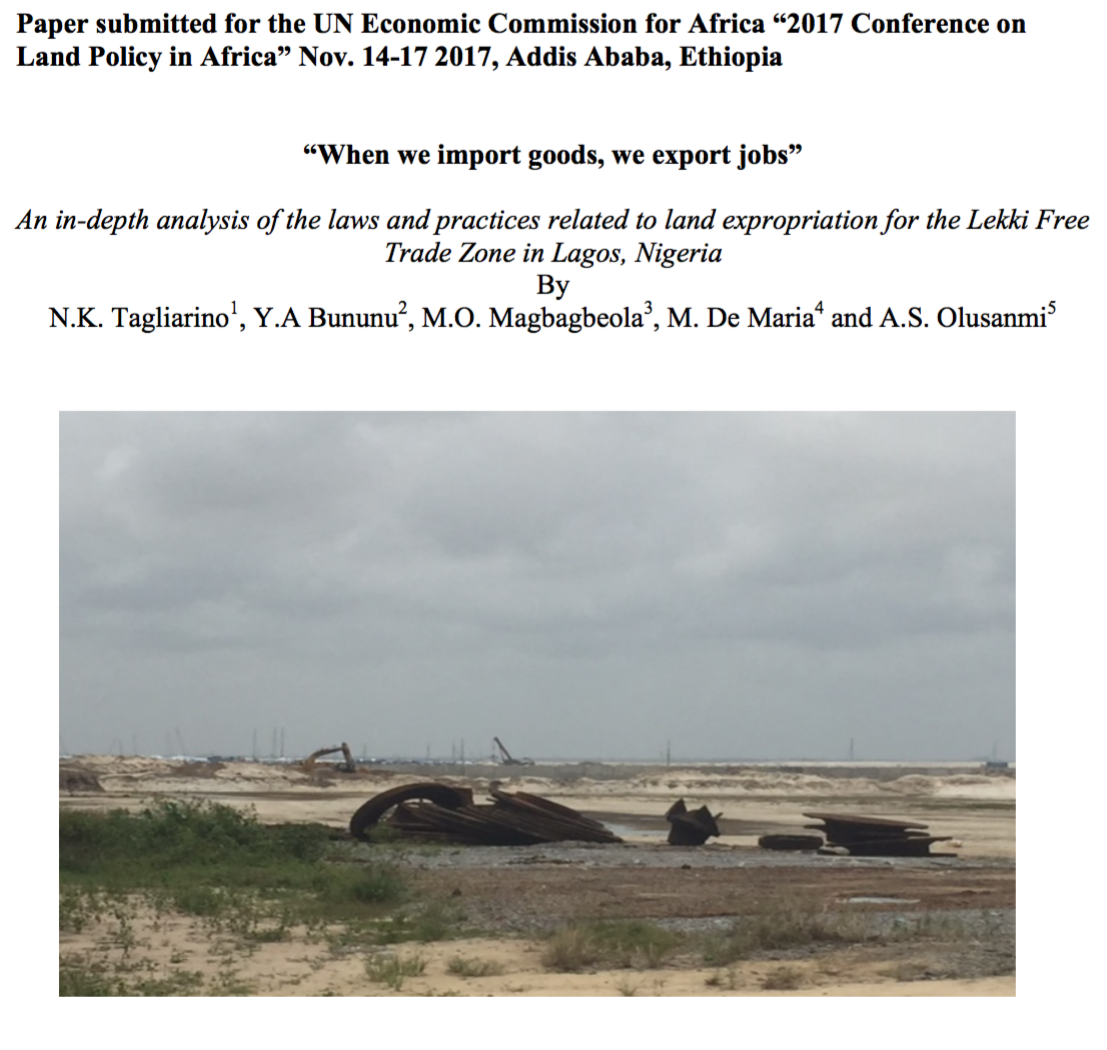Resource information
This article was submitted for the UN Economic Commission for Africa “2017 Conference on Land Policy in Africa” Nov. 14-17 2017, Addis Ababa, Ethiopia.
This article sheds light on a series of events that triggered escalating tensions over land and resources in the coastal communities of Lagos, Nigeria. This article provides an in-depth analysis of Nigeria’s laws on expropriation and the processes of acquiring land and compensating landholders in the Lekki Free Trade Zone (LFTZ) case. Specifically, the analysis addresses the following research questions:
1) Do Nigeria’s laws comply with internationally recognized standards on expropriation and compensation?
2) Did the government follow international standards on expropriation and compensation in the LFTZ case?
3) What measures can be recommended to the Nigerian government to the balancing of property rights with the public interest, thus ensuring the sustainable development of both affected communities and the general public?
Proposing law reform as a solution to the recurring issue of insufficient compensation, this article answers research question (1) by assessing Nigeria’s laws on expropriation and compensation to determine whether they comply with internationally recognized standards as established by the Voluntary Guidelines on the Responsible Governance of Tenure (FAO 2012). To conduct the analysis of Nigerian laws and practices related to land expropriation and compensation, the authors utilized the legal indicators on Nigeria from the Voluntary Guidelines on the Responsible Governance of Tenure dataset available on Land Portal. This dataset measures national expropriation laws against international standards and is publicly available on the Land Portal (Tagliarino 2016, 2017).
Answering research question (2) entailed conducting a desk review of primary and secondary sources on the LFTZ case as well as surveying 140 households from 10 communities that were affected by the LFTZ. The survey questions asked about the type of compensation, resettlement, and other entitlements granted to affected communities, the process by which compensation was calculated and land was expropriated, and whether the amount given was sufficient to cover income and other livelihood losses. Interviews were also conducted with local NGOs, government bodies, and the private sector to better understand the various viewpoints on the LFTZ case. Research question (3) was answered by using the findings from the legal analysis and LFTZ case study to develop a set of evidence-based recommendations for legal reform of the LUA.


